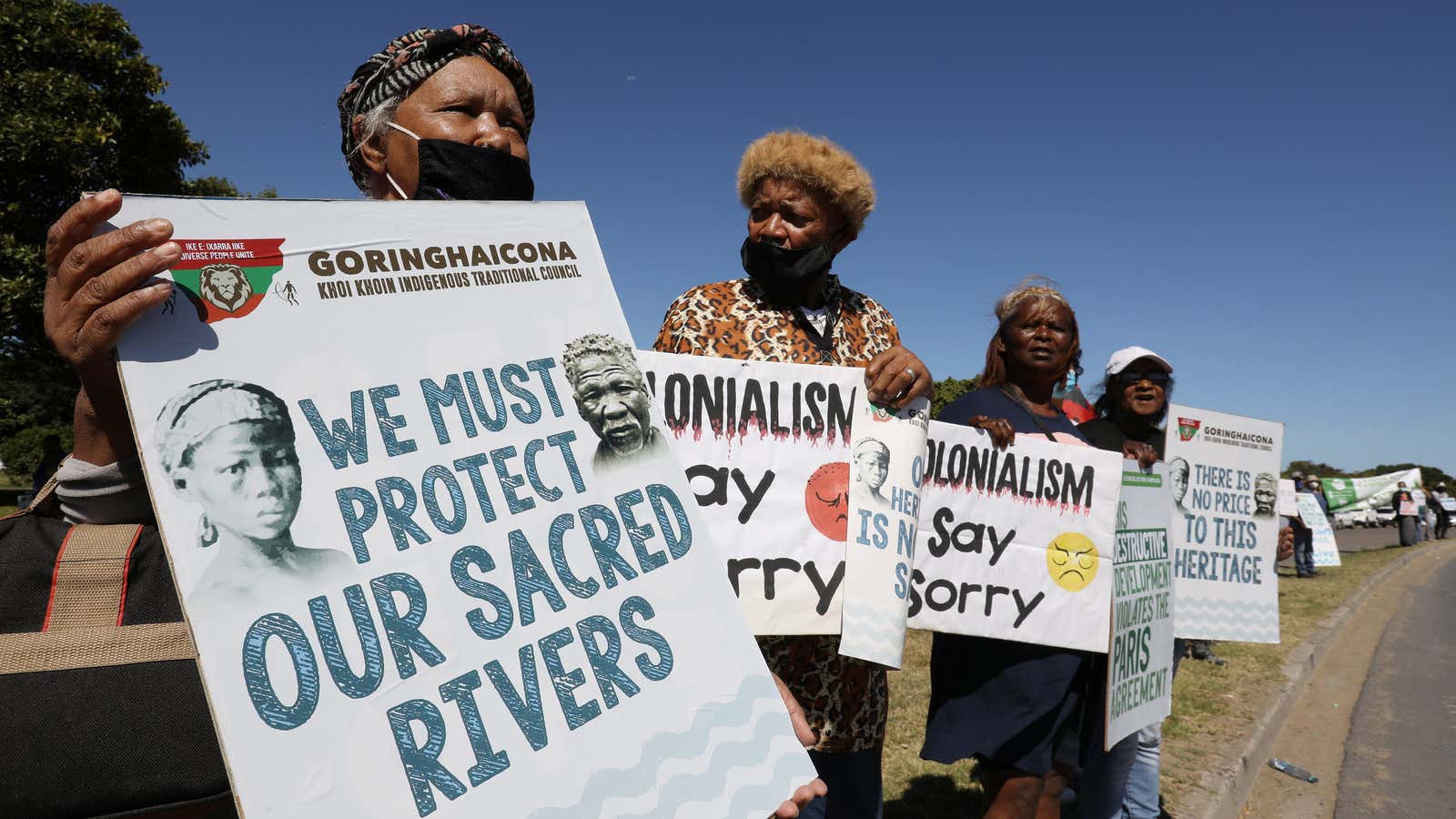A South African court ordered Amazon to pause construction of its 4 billion rand ($300 million) headquarters in South Africa over concerns by indigenous people that the US company is defiling sacred land.
The High Court in Cape Town, where the 37-acre site is located at the intersection of two rivers, issued the ruling on March 18. It told Liesbeek Leisure Properties, the project developer, to carry out “meaningful engagement and consultation” with the Khoisan people who claim to be the site’s original inhabitants.
Amazon received approval from the City of Cape Town in April 2021, but resentment and protests quickly followed. Last week’s order is the culmination of up to 50,000 objections from various parties.
South Africa’s indigenous Khoi people stop Amazon
Amazon has an active operation in South Africa, boasting three data centers and a workforce of about 7,000 people, and routinely lists many jobs on its website. The plan for a headquarters was to create a local base for Amazon Web Services, which possibly had its origins in South Africa, but also activate the retail giant’s online commerce platform on the continent.
Dan Plato, Cape Town’s mayor until last year, said Amazon’s proposed HQ offered “many economic, social and environmental benefits,” but that the city had “carefully and thoroughly considered all of the submissions and concerns during the appeal process,” guided by the need to “balance investment and job creation, along with heritage and planning considerations.”
Indigenous people did not buy it.
“A concrete block for an Amazon headquarters on this terrain is egregious and obscene,” Tauriq Jenkins, a leader of a Khoi traditional group opposed to the project, told the New York Times. The alleged obscenity lies in the fact that the project site is where Khoi communities repelled Portuguese soldiers in 1510, regarded as South Africa’s first resistance to colonialism. Other opponents have raised environmental issues.
Will Amazon abandon its future Africa home?
Jenkins, who is quoted in nearly every media article about opposition to Amazon’s project, told Bloomberg his group “will now proceed with the review with favorable prospects” following the ruling.
Whether it means Amazon will totally abandon the project or grant concessions to indigenous groups remains to be seen. The retail giant had promised to build a heritage center close to its office environs, which some other indigenous groups approved of, but perhaps more will be needed.
Sign up to the Quartz Africa Weekly Brief here for news and analysis on African business, tech, and innovation in your inbox.
